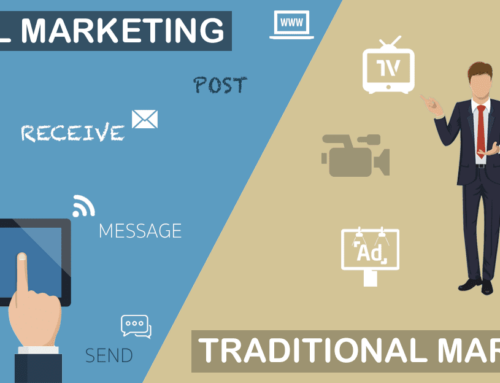Preparation For Developing A Legal Marketing Plan
To be successful with legal marketing, it’s important to have a marketing strategy in place. As with any venture, taking steps to prepare and having the right tools for the job makes all the difference in how much easier the process can be. Use this information to guide you.
Assembling a Legal Marketing Toolkit
It’s important not to take a haphazard approach to marketing. Being disorganized and shooting from the hip often leads to a lot of lost time, energy and money. For the best return on investment, it’s vital to have a good plan in place.
Before jumping into a marketing strategy, start the process by creating a legal marketing toolkit. Here are some things that need to be in it:
- Your law firm’s brand
- Brand guidelines
- Client personas
- Concept for your marketing funnel
- Website
- Editorial calendar
- Style guide
Explore these marketing tools in detail before tackling steps for a strategy.
Law firm branding
Branding is an identity. When you think about your practice, consider how you want people to view your law firm. Brand experience is the feelings and behavioral responses evoked by the design, identity, packaging and communications you deliver. Your brand should reflect your personality and areas of expertise.
In general, law firm brands should convey value, trust, and quality. Potential clients want to know how you will help them and improve their lives. Your brand image, style and voice should consistently communicate this message.
Develop a strong brand by putting together a list of words that best describe you, your practice and approach. Think about what makes your firm unique: your story, mission, vision and values. Keep in mind that the ultimate goal is for potential clients to not only have instant recognition of your brand, but also a positive feeling about your law firm. Put this information together as a one-pager. This will be your brand guideline.
Client personas
Having an ideal client persona will guide your legal marketing strategy. Identify your target market and create personas of potential clients. Don’t be general about it. Put together a composite sketch of a person or people based on the key segments of your audience. Give personas actual names and identify everything about them. This should include:
- Background
- Demographics
- Goals
- Behaviors
- Challenges
- Common objectives
- What your law practice can do for them
Marketing funnel
A marketing funnel describes your client’s journey with your firm. Establishing a marketing funnel guides your marketing efforts so you know the steps to take to influence consumers during each of these stages:
Awareness: During this stage, do not focus on your end result. You want to make contact. Potential clients want to check out your practice and brand. They want to know if you have what they are seeking. Provide content that showcases your expertise via blogs, videos and social media.
Consideration: The client starts to define their problem and is committed to researching ways to solve it. Most people today begin with internet searches. Leverage your website with optimized landing pages that provide information and include compelling calls-to-action.
Decision: During this step, the potential client is actively seeking an attorney to help with their problem. Provide great content to enhance the experience and build the relationship.
Law practice websites
Because so many people today go online to research attorneys, the first impression potential clients will get about your law firm is via your website. Thus, it is vital to have one that is well-designed, easy-to-navigate, responsive and secure. It should also be ADA compliant.
In addition to an attractive home page, an effective website should contain:
- About Us page: Tells your story and what makes your practice unique.
- Contact page: Provide all the ways clients can reach you.
- Services page: This is very important for the Awareness stage; people want to know if you can be of assistance for their specific needs.
Also consider adding pages that list your mission statement, client testimonials, blog, case studies or frequently asked questions.
Editorial calendar
Think of an editorial calendar as a road map to get you to the goals you set for your marketing strategy. It allows you to organize thoughts over a month, quarter or year. You and your team can then see the big picture of your digital marketing strategy. While it may seem like busy work to construct it, an editorial calendar is critical for saving hours of time and energy because it keeps everyone on track, and ties ideas together while tasks get accomplished and goals are achieved.
Style guide
Developing a style guide standardizes the way you communicate your brand. To convey your voice and character accurately, authentically and consistently, create a rule book with:
- Specific terminology
- Company messaging
- Localized references
- Grammar
- Spelling
- Punctuation
- Tonal elements (like abbreviations)
This will ensure high-quality communications that stay true to the brand at all times.
Create a marketing strategy
Once you have all your tools in place, move forward with developing a plan. A marketing strategy is a long-term approach to achieve the goals you set for your law practice.
When you get very specific, it is possible to create a more targeted legal marketing plan to attract exactly the type of client you are seeking. Any goal you set – for example, more website visitors or increased newsletter subscribers – should be tied to a metric that measures your success, ROI and keeps you within budget and timelines.
Need some help with your legal marketing? The T.E. Digital team has expertise and can assist at any point along the way, just give us a call. Let’s have a conversation about your firm, brand and goals.






Leave A Comment